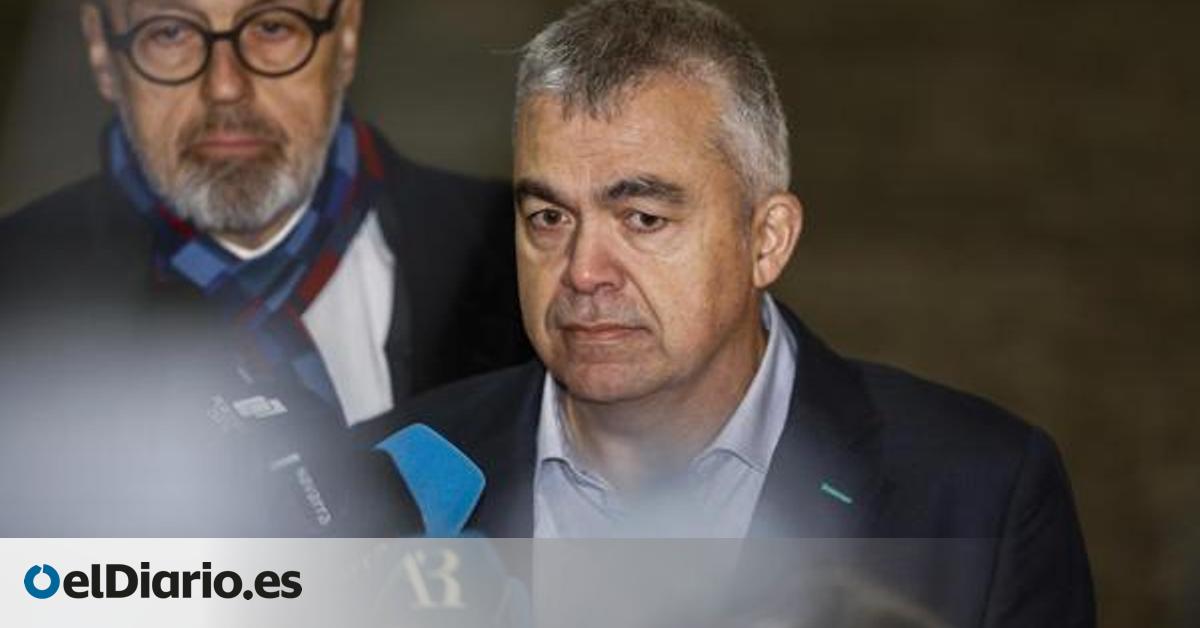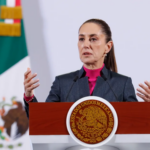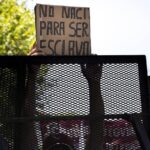
This Wednesday was another turbulent day in the investigation that has placed two former PSOE Organization Secretaries at the top of a plot to collect bribes in exchange for public awards. After the impact of the Civil Guard report that supports the evidence against Santos Cerdán, the investigator of the case in the Supreme Court, Leopoldo Puente, early agreed to his release after 142 days in prison considering that, after the latest searches, there is no longer a risk that he will destroy evidence. “Lies have been told, I trust that the truth will prevail,” said Cerdán after seven in the afternoon, when he left the prison accompanied by his lawyers.
Hours before, at noon, news had arrived for the other two main investigators: José Luis Ábalos and his former advisor Koldo García. The Anti-Corruption Prosecutor’s Office registered the document in which it demands sentences of more than twenty years in prison for them for the part of the case focused on the mask contracts. In addition, he requested that a hearing be held to decide whether or not they should remain free, which will take place in the coming days.
In his writing, chief prosecutor Alejandro Luzón does not give any clues about what his request will be. He only points out that he will demand a “modification” of the precautionary measures that currently apply against both of them and that consist of the withdrawal of the passport and the obligation to appear before Justice every 15 days. The prosecutor can choose to ask them to appear every week, pay bail or even request their entry into prison given the risk of them escaping due to the high sentences to which they are exposed.
It will be the judge who will have the last word, although the paradox could arise that shortly after Cerdán leaves prison, Ábalos and Koldo García could find themselves in the same situation if the Prosecutor’s Office or the rest of the accusations manage to convince the magistrate that there is sufficient risk to decree their provisional entry.
Sánchez prepares for more shocks
In Moncloa they assume that the entire legislature will be suffering aftershocks of the judicial earthquake that had its epicenter last June with the first report from the UCO that placed the then Secretary of Organization on the brink of accusation. “Corruption always hurts,” government sources acknowledge about the cases that shook the foundations of the Executive five months ago. However, in Sánchez’s cabinet they maintain that the sharp drop they suffered in the polls with Cerdán’s imprisonment has already softened and they consider that they are in a position to fight given that the partners, except for Junts but for other reasons, have not let go.
What Sánchez and his team strive to do is to encapsulate the cases of corruption in the “bad apples”, which are Cerdán, Ábalos and Koldo. The problem is that two of them were people of the president’s utmost confidence, one of them a minister, and that is a wear and tear that will accompany him for the remainder of his term. “It does not affect the rest of us,” says a minister on the subject who sees the scope of action of these three people as “very circumscribed.”
What they emphasize in both Ferraz and Moncloa is that the causes do not affect the PSOE as an organization and they try to remove the ghost of a corrupt Government. What’s more, they harbor doubts that the party has been harmed by his actions. “I don’t see the party anywhere,” says one of the sources consulted, who assures that no “irregularities” have been found in the contracting procedures for the works under suspicion. And they try to exonerate the president for the failures in surveillance as well as the difficulties in detecting the way of working through “forced” UTEs between Acciona and Servinabar.
In the socialist ranks they remain for now waiting for the attitude that Cerdán may have upon his release from prison, but they rule out that it could involve the party or the Government. Although the mood is better than half a year ago, they are preparing for continuous shocks for the remainder of the legislature in the hope that it will not affect more people and that citizens will ‘pardon’ Sánchez for the election of those who were his most trusted people in the party.
Strong evidence against Cerdán
Cerdán left the Soto del Real prison (Madrid) late on Wednesday, where he had been held since June 30. It has been almost five months in which Judge Puente says he has gathered sources of evidence that “strengthen” the indications that the former socialist leader profited from the collection of commissions linked to the awarding of certain public works.
During the time he has spent in prison, his defense has requested his release up to four times. The last one less than a month ago, when their lawyers denounced a “comparative grievance” against Ábalos and Koldo García, who remained free after their last statement before the judge. Finally, the magistrate made that decision ex officio. He did so after receiving a report from the Central Operational Unit (UCO) of the Civil Guard that contains new evidence that indicates that he directly benefited from the alleged rigging of public works and after carrying out a battery of searches at the Acciona headquarters in Madrid, Bilbao and Seville and in two cooperatives in Donostia linked to those investigated in the case.
Cerdán had remained in prison since last June, when another report from the armed institute brought to light recordings in which he explicitly acknowledged having collected bribes. The latest police findings are beginning to put figures on these “compensations” while waiting for another report on his assets on which the agents continue working. The UCO is mandated by the judge to investigate your bank accounts and products, as well as your real estate or vehicles. The content of his PSOE corporate email is also in the possession of the agents, where the judge suspects that he may have sent or received “certain relevant communications.”
The latest report places him at the center of the corrupt network: in meetings reserved with Acciona “as a Transport liaison” for the alleged rigging of works and as a beneficiary of these alleged arrangements through Servinabar, a small company that kept 2% of the contracts under suspicion that it won with the large construction company and that paid him more than 90,000 euros in rent, trips and meals and that also employed his relatives. To do this, he used a Business Visa in the name of the company that he stopped using on February 19, 2024, one day before Koldo García’s arrest.
Cerdán will not return to the apartment in the Chamberí neighborhood of Madrid where he has resided since 2018 with his family. They abandoned him on June 30, after his entry into prison, according to the latest UCO report. During the first 15 months in which he lived in that property, the monthly rent – which was around 3,000 euros – was paid for by the plot company, as the investigation has proven. Servinabar paid a total of 44,645.26 euros. He also purchased furniture worth 7,849 euros, although the handwritten notes seized included an estimate of 10,000 euros for “furniture.”
It is unknown what defense strategy the former PSOE ‘number three’ and key figure in some of the most important policy issues deployed by Pedro Sánchez will follow from now on. Until now, Cerdán has denied having any involvement in Servinabar. In his statement before the judge last June, he said that the “private contract” by which he would have acquired 45% of the companies’ shares was just a draft that he tore up. He assured that it was a plan for his life after politics, but that in the end he did not stop actively exercising it and that it never materialized. In the records of recent months, however, another contract has appeared that underpins his participation in the company.
Before the judge, Cerdán also stated that the investigation against him responded to his prominent political role in achieving progressive governments and in negotiations with nationalist political forces. A “victimist” consideration, as left in writing by the Chief Anti-Corruption Prosecutor, Alejandro Luzón, in charge of directing the public prosecution in this case and who attributes a “decisive” role to him in the plot.
Precisely this Wednesday, Luzón requested 24 years in prison for Ábalos and a fine of almost four million euros in the part of the case focused on the mask plot and other irregularities during his time at the head of the Ministry of Transportation, such as the plug in public companies of two women linked to him. The representative of the Public Ministry also requests sentences of 19 and a half years in prison for the axa-adviser Koldo García and seven for the businessman and commission agent Víctor de Aldama, to whom a mitigating confession applies for supposedly having collaborated with Justice.
The prosecutor highlights the “screenshots” provided by the commission agent where there is a list of works from the General Directorate of Highways of the Ministry of Transport with a list of contracts that would be “pre-awarded” to certain companies that “would have acquired the commitment to pay commissions if they were awarded.” He also provided an image of some handwritten notes that he attributed to Koldo García and which contained up to six rigged contracts. It is “relevant information” that, according to the prosecutor, put the spotlight on the alleged rigging of works and made it possible to reach Santos Cerdán. The former socialist leader was released from prison this Wednesday, crying out against the alleged “lies and manipulations” in the interpretation of Civil Guard reports that contain more and more evidence against him.
Source: www.eldiario.es

